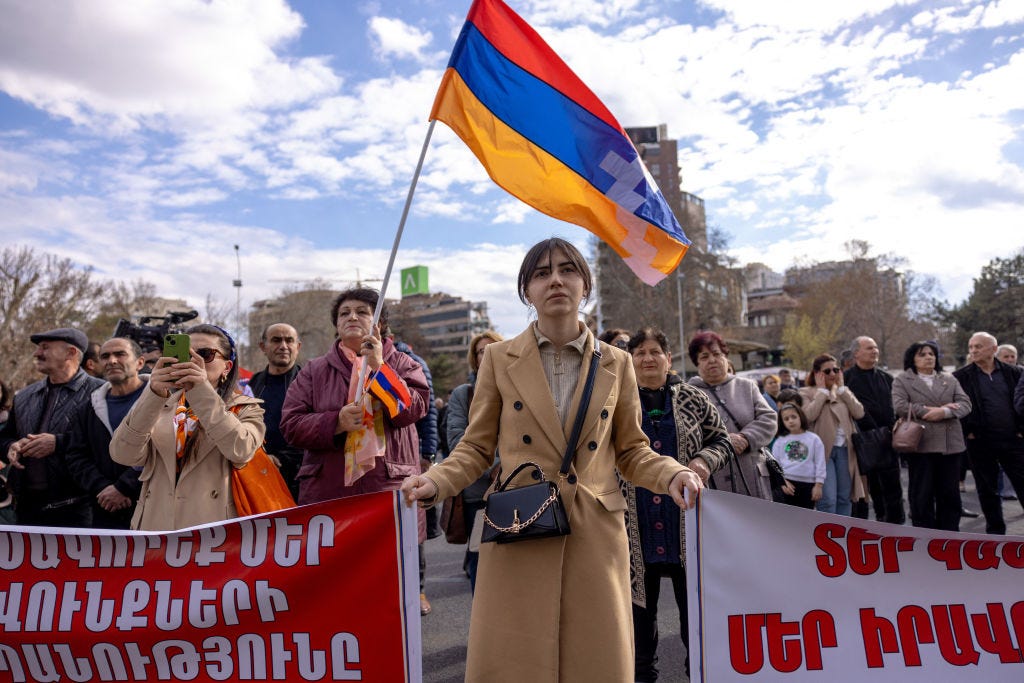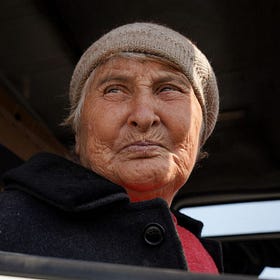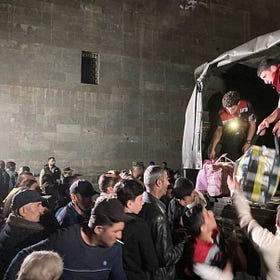Armenians fear new war with Azerbaijan despite talk of peace
Ethnic Armenians who lost their homes in Nagorno-Karabakh worry Azerbaijan plans another war.
By Grigor Atanesian & Tim Whewell (BBC World Service).
When more than 100,000 ethnic Armenians fled their homes in Nagorno-Karabakh last September, Nina Shahverdyan and her brother, parents and cousin spent 30 hours on the road trying to leave.
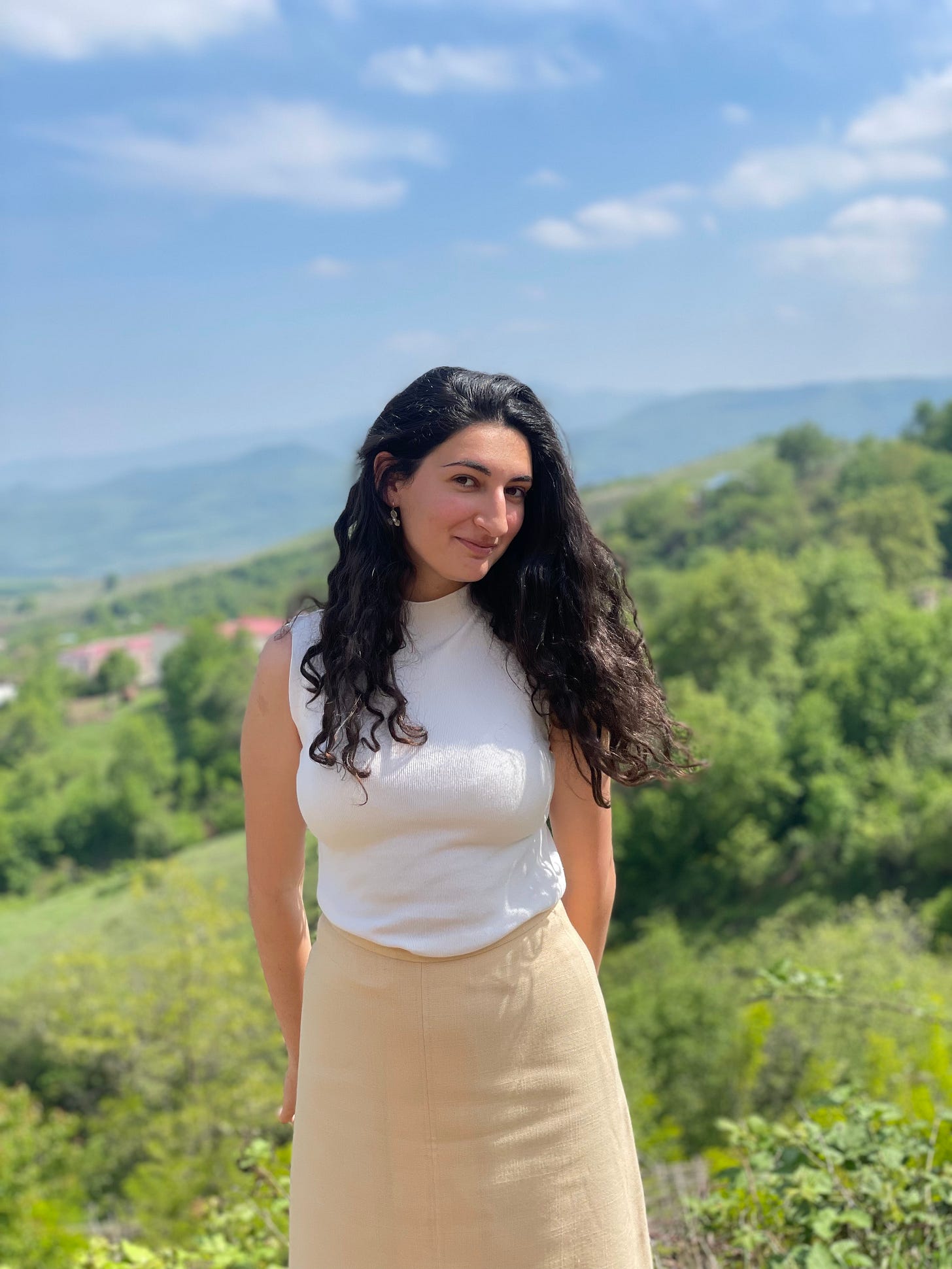
"People died of heart attacks. People died because they were just too old to live through that pain. Children were crying," she remembers.
In a matter of days Azerbaijan's military regained all the lands it had lost in a war triggered by the collapse of the Soviet Union.
What worries Armenians now is that their neighbour wants more, even if Azerbaijan's president talks of being close "as never before" to a peace deal.
They have heard Ilham Aliyev speak before of Armenia being "Western Azerbaijan" and see it as a sign of imminent invasion.
Only last month Armenian Prime Minister Nikol Pashinyan warned that Azerbaijan was looking to start "a new, large-scale war". He has since agreed to hand back four abandoned border villages in a sign of improving relations.
Azerbaijan says Armenian fears are unfounded. However, President Aliyev has demanded that Armenia give his country a free railroad corridor through its territory to its exclave of Nakhichevan.
Armenia wants to have control over the road and the Azerbaijani leader has in the past threatened to take the corridor "by force".
An increasing number of civilians in the Armenian capital, Yerevan, are taking up military training run by volunteer organisations.
"It doesn't matter if you're a boy or a girl," says Nina, as she learns to use firearms. "You need to know how to protect yourself in a country like Armenia, where all the borders can be attacked."
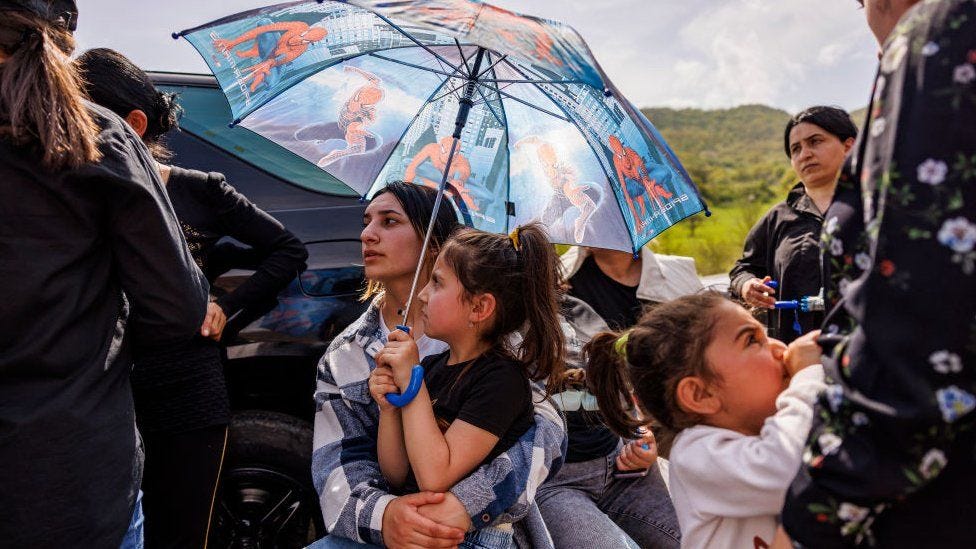
Independent foreign policy expert Zaur Shiriyev believes all the talk about Western Azerbaijan was nothing more than "a tactical manoeuvre aimed at compelling the Armenian side to relinquish claims regarding the rights and security of Karabakh Armenians".
But it is not just statements that worry Nina. The conflict between two countries has extended far beyond Karabakh.
Before Azerbaijan recaptured Karabakh there were clashes along Armenia's recognised border.
Cities deep inside Armenia's territory were shelled for the first time in 2022 and Azerbaijani forces advanced into Armenian territory and remain there. More than 300 soldiers died in just two days, and as recently as February this year four Armenian servicemen were killed by shelling.
According to a recent opinion poll, Armenians place national security and border issues as their biggest problem. Their sense of insecurity is fuelled by disillusionment with Russia, traditionally seen as Armenia's security guarantor.
Both Russia and the Russian-led CSTO military alliance of which Armenia is a member stayed neutral and refused to intervene in the most recent conflict with Azerbaijan. And Moscow has also failed to deliver $200m of Russian-made weapons which Yerevan had already paid for.
Armenia had already been looking West even before the fall of Karabakh.
It hosted a joint military exercise with the US and has since secured weapons sales from France and a commitment to train Armenian officers. The French ambassador said his country was the first Nato member to provide arms to a formal ally of Russia.
For both government and the public, it was clear, says Alexander Iskandaryan, director of The Caucasus Institute, a non-partisan think tank in Yerevan: "Russia in reality has either never been such a security provider for Armenia as it was seen in Armenia, or it has not been that for a very long time."
Armenian officials have hinted at plans to apply for EU membership, and the European Parliament last month adopted a resolution on deepening ties with Yerevan.
Nikol Pashinyan says he simply wants to "diversify" Armenia's foreign policy, but both Russia and Azerbaijan see a threat to their interests and warn of serious consequences.
Russia's foreign ministry says Armenia has become "a tool the West plans to use to set the South Caucasus on fire".
And yet tens of thousands of Russians have headed to Armenia since 2022, either because of their opposition to the war in Ukraine or because they are fleeing mobilisation.
LISTEN to Grigor and Tim’s report on BBC World Service Radio. Armenia’s Lost Garden: Assignment.
Despite the lack of mutual trust between Armenia and Azerbaijan, the two neighbours are trying to reach a peace agreement.
They have established a bilateral delimitation commission tasked with agreeing on borders.
Armenia has promised to return four Azerbaijani villages on the northern border held since the 1990s. Mr Pashinyan has rejected criticism of the deal, arguing it is the only way to avoid war.
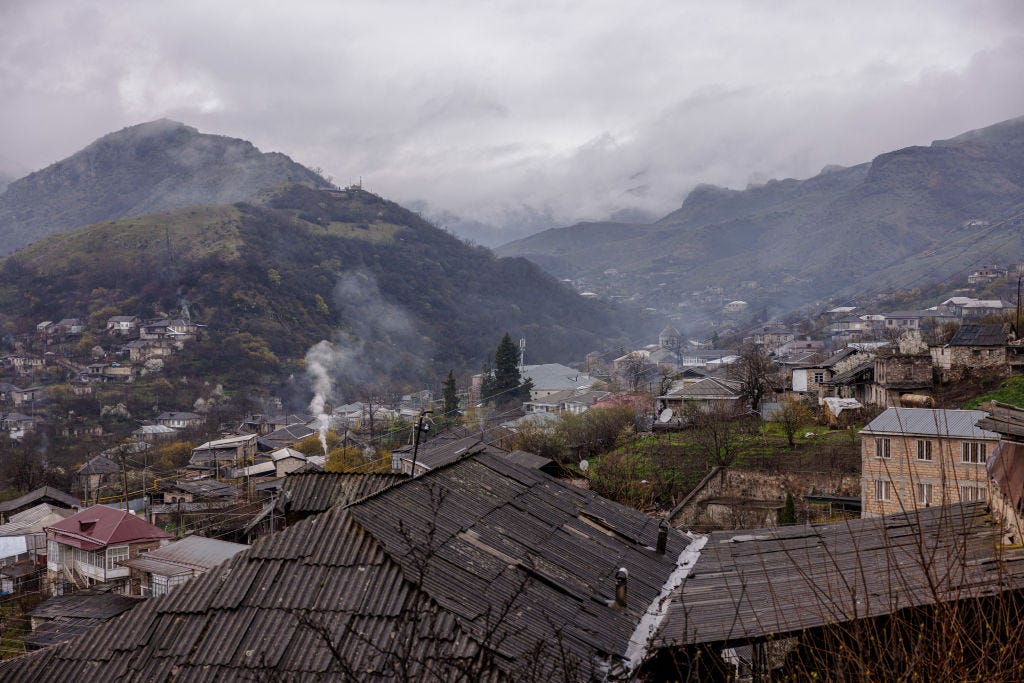
But residents of Armenia's border villages fear being left exposed to attack and being cut off from the rest of the country.
The prime minister has tried to reassure them.
"We don't want you to say: 'Oh no, Azerbaijan is 50m from here'," the Armenian leader said. "We want you to be able to say: 'Wow, Azerbaijan is 50m from here, let's go trade there.''
After three decades of enmity and war that seems quite a step.
Even if the two leaders can agree terms, Alexander Iskandaryan of The Caucasus Institute is sceptical of such a warm peace, and independent Azerbaijani expert Zaur Shiriyev agrees.
"It's important not to overemphasise the peace agreement."
This story was published on the BBC News site.
Previously…
Azerbaijan’s Karabakh challenge: a genuine commitment to change, or more empty words?
BBC Russian speaks to Georgia’s last Minister for Reintegration and a leading specialist on the conflicts in South Caucasus, Paata Zakareishvili about the future of Nagorno Karabakh.
"Give us a new planet”: tens of thousands of Armenians flee Nagorno-Karabakh
BBC Russian reporters have been to the southern Armenian town of Goris and up to the border with Azerbaijan to hear the stories of Karabakh Armenians fleeing the uncertainty of life under Baku.





